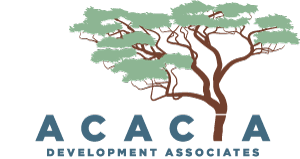There is no doubt that COVID-19 is a massive change. Many, many assumptions have been tested and found wanting; and many people are wondering what to do next, how to adapt, and what the future holds. But there are limits to conventional programming. Adaptive programming, long theoretical and fashionable, is now essential to the necessary skilful navigation by donors, implementors and partners at all levels.
Introduction
The main problem with the C19 crisis is not so much that it is a crisis – donors, governments, partners and people have all managed crises before. No, the main problem is the scale of this one. It is – almost literally – a crisis with no edges or limits. It affects everything, everyone, all the time, in every way.
But in truth, addressing this one big crisis is really a question of breaking it down into smaller, more manageable chunks; and addressing each element of it in as integrated a manner as possible.
Adaptive management and contextual analysis
In partnership with Intrac and Port Meadow Consulting, Acacia Development Associates has been delivering adaptive management training to a group of Slovakian civil society organisations (CSOs) to help them pivot their new and existing projects to be in line with new and fast changing Slovak priorities. At the outset, this seemed like a large and insurmountable problem. But it turns out that by building their approaches on careful contextual analysis and adapting them to issues related to C19 the problem starts to look less monolithic and less massive. It has, albeit within strict limits, begun to seem do-able after all.
To do list
But what would really help the Slovakian CSOs, and many others that we have been supporting, are two cultural shifts both of which feel frustratingly in reach but both of which seem elusive all the same.
Programming is too linear. Too many of the CSOs – most of whom receive funds from their government – are forced to be accountable not for what they achieve, but for what they do. This is a perennial problem in which people mistake a sequence of deliverables for an overall effect. Being bound by output targets, organisations find that they get paid to deliver activity rather than paid to facilitate agreed and overall change.
Development relationships are too hierarchical. It is by now a hackneyed phrase, but the current crisis is “unprecedented”. In truth, neither donors nor implementers know how to do what needs to be done. In the teeth of such a crisis, any and all learning – about what might work; about local issues; about nuance – ought to be welcome. But even programmes with a strong learning element seem unable to open a practical conversation with their donors about the problem and how to address it. Donors feel that they ought to “own” the problem, “know” the solution and commission others to act. Implementors feel that they are being “told” what to do by people who don’t understand the local context or the art of the possible.
Trust
The common theme here is “trust” – or lack of it. A culture of semi-commercial contracting has inadvertently removed this essential dynamic from the design and delivery of development programmes and projects, arranging donors and implementors in tension and not in union. Only “trust” – supported by mutual respect and understanding – will permit the people who “own” the problem to engage with the people who are closest to it. And the return of “trust” would help the CSOs skilfully to navigate the complex environment of C19 response using, in the near term at least, principles-based approaches rather than being forced to adhere to pre-C19 commitments denoted only in time and quantitative deliverables.
As in so many other walks of life, perhaps the time has also come to realise that the market has limitations, including that it has facilitated this erosion of trust between donors and implementors. Collaboration and mutually supportive engagement is a more productive approach in uncertain times when the “right” answer is not always obvious, and immediate action that does not harm is a requirement.
Don’t try this at home
By the way, the answer to the question of how to eat an elephant is: “One mouthful at a time”.
Programming is too linear. Too many implementors are forced to be accountable not for what they achieve, but for what they do.
Development relationships are too hierarchical. Neither donors nor implementers know how to do what needs to be done so any and all learning ought to be welcome. But donors feel that they ought to “own” the problem, “know” the solution and commission others to act; and implementors feel that they are being “told” what to do by people who don’t understand the local context or the art of the possible.


Leave A Comment